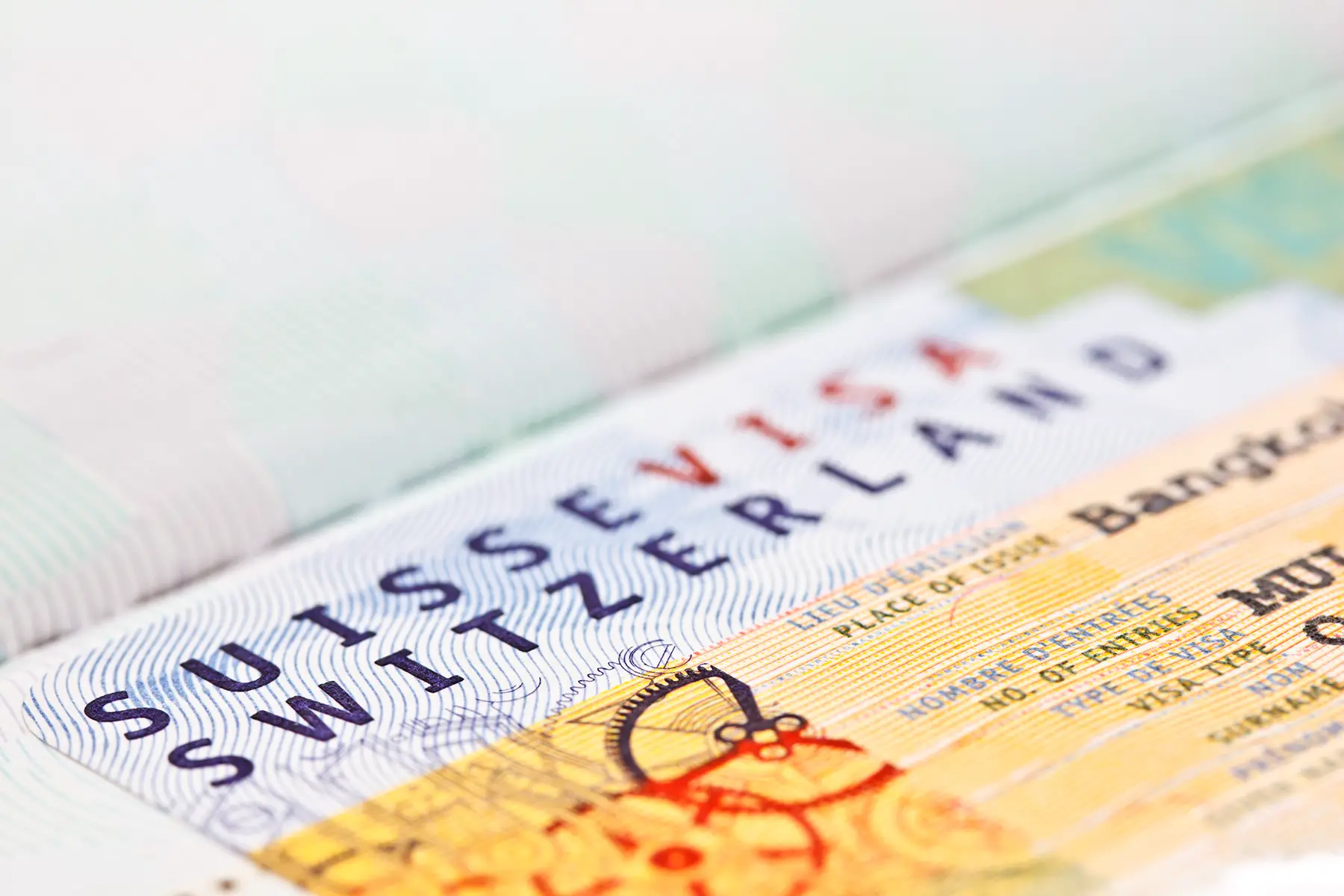Between the cheese, the chocolate, and the national penchant for punctuality, it can be easy to miss some of the details of working in Switzerland. However, it’s very important to know your rights in the workplace. So, in this guide, we review the basics of labor law in Switzerland, from taking leave to joining a union, to filing a complaint. Learn about the following topics:
- Switzerland’s labor laws
- Foreign workers – your right to work in Switzerland
- Employment contracts in Switzerland
- Wages and salary in Switzerland
- Work hours in Switzerland
- Paid and unpaid leave in Switzerland
- Parental rights in Switzerland
- Social security and tax in Switzerland
- Protection from discrimination at work in Switzerland
- Joining a union in Switzerland
- Health and safety at work in Switzerland
- Terminating the employment relationship in Switzerland
- Company mergers and insolvencies in Switzerland
- Temporary, part-time, and informal workers in Switzerland
- Making a complaint as a worker in Switzerland
- Useful resources
Switzerland’s labor laws
If you’re looking for a job in Switzerland, you should know that the country’s protections for workers are fairly straightforward and explicit. These include caps on hourly work weeks, requirements for overtime pay, and mandatory yearly paid holiday time.

In fact, the average full-time employee in Switzerland works 41 hours per week. The relevant laws impacting labor law in Switzerland include the recently updated Gender Equality Act and the Code of Obligations, which date back to 1911.
Foreign workers – your right to work in Switzerland
As in many European countries, your right to work or seek work in Switzerland depends on your nationality. In recent years, the government has reduced the number of Switzerland work visas issued to those from outside the European Union (EU) and the European Free Trade Association (EFTA, which consists of Iceland, Liechtenstein, Norway, and Switzerland).
If you are an EU citizen, you may travel to and stay in Switzerland for three to six months while looking for work. When you find work, you’ll need to get a residence permit. For non-EU citizens, you will need a job offer that meets certain requirements before being able to apply for a work visa. Keep in mind that, as a non-EU citizen, your work visa is tied to your employer so switching jobs within Switzerland is not a simple task.
Employment contracts in Switzerland
Employment contracts in Switzerland are fairly liberal, though contracts can be standard, collective, or individual. Within your contract, you want to make sure to find the following: the salary, the type of work, and the length of the work (indefinite or fixed). Entire employment contracts do not need to be in writing, but the employer must provide the employee with certain specifics in writing, such as start date, salary, and expected weekly hours.

You can expect any contract to be in the language you’ll be working in, often depending on what part of Switzerland you’re in. Finally, remember that the first one to three months of most jobs consist of a trial period and during this time you can be dismissed at any time without explanation.
Wages and salary in Switzerland
Even though salaries tend to be higher in Switzerland, there is no nationwide minimum wage. That said, some individual cantons within the country have set their own minimum wages and certain sectors have industry-wide salary standards.
Workers in Switzerland receive their salaries monthly, with many employers spreading it out over thirteen months. Therefore, many employees end up receiving two months of salary in December to help with the end-of-year expenses.
Work hours in Switzerland
Labor law in Switzerland sets out the maximum weekly hours that employees should work and, based on the industry, this can be between 45 and 50 hours per week. If an employee works overtime, their salary for that time increases by at least 25%. Additionally, their overtime hours can’t go over two hours per day and 140 (for a 45-hour workweek) or 170 hours (for a 50-hour workweek) per year, depending on their weekly hour cap.
When you’re on the job, you’re entitled to a minimum break of 15 minutes (for a 5.5-hour workday), 30 minutes (for a 7-hour workday), or an hour (for a 9-hour workday). Many companies offer employees flexible working hours, but the specifics will depend on the industry and employer.
Paid and unpaid leave in Switzerland
Holiday pay in Switzerland
If you’ve worked with your employer for at least a year, you’re entitled to four weeks of paid vacation per year; two of these weeks have to be consecutive. The only nationwide public holiday is on 1 August. However, individual cantons will set their own public holidays throughout the year and local employers will respect these.

You can work on holidays, but employees must consent and employers must increase the pay by 50%. Many employers also offer several paid holidays, though this will vary by canton.
Maternity/paternity pay in Switzerland
Maternity leave in Switzerland is quite generous. Expectant mothers can take 14 weeks off after their child is born and will receive 80% of their original pay, provided they meet certain requirements. Mothers are not allowed to work in the first eight weeks after giving birth.
Since January 2021, new fathers can take two weeks of paid paternity leave (14 days’ daily allowance). Paternity allowance amounts to 80% of earnings up to a maximum of CHF 196 per day. Cantonal provisions, personnel regulations, and collective employment contracts may provide for more generous solutions.
Sick pay in Switzerland
Your first one to three months with an employer are part of a trial period. During this time, you don’t have access to protections against being fired for any reason, including if you get sick, have an accident, or become pregnant. After this trial period, though, you get a minimum of three weeks of paid sick leave per year. The specifics of your sick pay entitlement will vary by length of employment and by canton – some cantons have offered long-time employees more than 10 months of sick pay.
Other forms of paid leave in Switzerland
Employers must provide leave for employees to perform any required military service. Workers younger than 30 years old also have the right to a week of unpaid leave to volunteer with a cultural or social organization.
Beginning in 2021, employees can take paid short-term leave in order to care of a relative, limited to 10 days per year. Additionally, starting in July 2021, parents can take up to 14 weeks of leave within 18 months to care for a child that is seriously ill. The amount paid for this leave is capped at CHF 196 daily. The process of requesting leave will vary, but the best place to start is with your employer. They can generally best advise you on your options.
Unpaid leave in Switzerland
Unpaid leave is not legally guaranteed by labor law in Switzerland. Many employers, though, are willing to at least consider it. Depending on how long you’ve been with your employer, and your reasons for requesting unpaid leave, you could have your request granted.
That said, because you wouldn’t be receiving a salary, your employer wouldn’t be required to make social security, accident, or unemployment contributions during your leave.
Parental rights in Switzerland
Pregnant women have a few workplace supports. Their working hours are capped at nine hours and they are not to perform dangerous work or come into contact with harmful substances. Expectant mothers are also prohibited from working at night for at least eight weeks before giving birth. Additionally, an employer may not terminate a pregnant employee during her pregnancy or in the 16 weeks after delivery.

Breastfeeding mothers who return to work are legally entitled to an appropriate, private space to do so. Breastfeeding while at work is paid time, ranging from 30, 60, and 90 minutes depending on the length of the workday.
Social security and tax in Switzerland
Anyone living and working in Switzerland is eligible for social security benefits. These include healthcare, retirement, parental leave, family allowances, and unemployment benefits. Some of these benefits, like health insurance, you’ll need to take out on your own for you and your family. On the other hand, the state will organize other benefits, such as unemployment, and you will contribute a part of your salary.
Income taxes are calculated on a federal, canton, and municipal level. Your tax rate, then, will depend on where you live, your income, and your family size.
Protection from discrimination at work in Switzerland
The Swiss constitution explicitly prohibits direct and indirect discrimination based on gender, religion, race, sexual orientation, and ethnic background. Additionally, it is the responsibility of employers to fully address any claims of harassment in the workplace.

The first step, then, is to bring up any concerns with your employer. If this doesn’t yield results, you can consider contacting an employment lawyer who can best advise you on your options. Many Swiss cantons have special courts for labor disputes. The courts provide for simplified proceedings, including mediation. In these cases, you won’t have to pay court fees if you bring a claim to the court that is less than CHF 30,000. For claims exceeding CHF 30,000, however, the parties must pay both the legal fees and court fees.
Joining a union in Switzerland
Labor law in Switzerland constitutionally guarantees the freedom of association, which includes the right to join or not join a trade union. Though trade unions have a rich history in Switzerland, only about one in five Swiss people belong to a union.
There are two main trade union federations operating in Switzerland: the Swiss Trade Union Federation and the Travail Suisse (website in German and French). Each serves as an umbrella for several associations. Even though striking is a constitutionally guaranteed right, Swiss workers rarely go on strike because most issues are solved with negotiation and collective bargaining.
Health and safety at work in Switzerland
Employees in Switzerland have a legally guaranteed right to health and safety at work. Specifically, the Labor Law details standard work hours, protection of employee health, and building regulations. The Accident Insurance Law, though, focuses on preventing occupational accidents. Swiss regulations are quite similar to the EU regulations. The labor inspectorates in each canton, the Swiss National Accident Insurance Fund (SUVA), and the State Secretariat for Economic Affairs (SECO) enforce the regulations.
If you believe your employer is violating health and safety protocols, consider bringing it directly to your employer first. If it isn’t resolved there, you can take it to your union (if you’re in one), a relevant complaint office, or the labor inspectorate. Keep in mind that an employer can’t fire you for making a health and safety complaint; if they do, they may be required to pay you up to six months of your salary.
Terminating the employment relationship in Switzerland
Dismissal
Labor law in Switzerland empowers both employers and employees to terminate employment quite easily. Your employer can dismiss you for any reason, though they may have to give you notice, depending on your contract. If you’re on a fixed-term contract and your employer wants to fire you before the end of your contract, they have to have a good reason. Otherwise, they might be liable to compensate you for the time you would have had left under the contract.
If you’re on an indefinite contract in your first year of work, your employer must give you one month’s notice. However, if you’ve been working there between two to nine years, they must give you two months’ notice. Finally, if you’ve worked there a decade or longer, they must give you three months’ notice. Once you’re no longer working, you qualify for unemployment benefits through the Swiss social security system, which will pay you a percentage of your salary.
Leaving a job voluntarily
As an employee, you have similar rights as an employer in terminating a contract. If you’re on a fixed-term contract, you’ll have to wait until the end date of the contract, unless you have good cause to end it early. If you’re on an indefinite contract, within your first year, you must give one month of notice. Anywhere from your second to ninth year, you must give two months of notice. If you’ve been there 10 years or longer, you have to give three months’ notice.

Keep in mind that your notice begins when you give your employer your resignation letter, detailing the date of resignation. The Swiss government provides tips for writing a resignation letter.
Retirement
The legal age of retirement in Switzerland is currently 64 for women and 65 for men. In some cases, it is possible to retire early. However, this depends on the terms of your pension, so be sure to familiarize yourself with yours. You can keep working after retirement age, but be prepared to continue contributing to your AHV pension.
Company mergers and insolvencies in Switzerland
Often, in mergers and acquisitions, employees are transferred to the purchasing company. According to labor law in Switzerland, employees must be notified of the acquisition or merger and of any anticipated legal, economic, or other consequences to the employees, including a change in contracts. If an employee does not consent to this transfer, the working relationship will likely be terminated.
If your company becomes insolvent, you may be able to apply for compensation. Mergers and insolvencies are complicated. So, if you’d like to know your specific rights as an employee, consider hiring an employment lawyer to walk you through your options.
Temporary, part-time, and informal workers in Switzerland
Because Switzerland has such limited work visa options for non-EU expats, you’ll find that part-time or short-term work is not very accessible. Non-EU expats usually receive work visas through a job offer from a Swiss company; generally, Switzerland doesn’t offer self-employment visas.
However, if your partner is a citizen or a permanent resident, you can seek temporary or short-term work because you have access to the labor market through your partner. The rights and work contracts of these kinds of jobs will depend on the position you’re seeking.
Making a complaint as a worker in Switzerland
Making a complaint as an employee involves several, escalating rungs. Your first step should be to try to file a complaint directly with your employer, as they have the most capacity to solve your issue. If this doesn’t work, you could try to file either an individual or a collective labor dispute, depending on the nature of the complaint.
The process of filing a complaint, including timelines and costs, will vary depending on the canton you live in. You can visit the website of the Swiss authorities to learn more about legal support in your particular canton.
Useful resources
- ch.ch – find information in English on Swiss employment law from the federal government.
- Federal Gender Equality Act – includes regulations for workplace gender equality in Switzerland.










